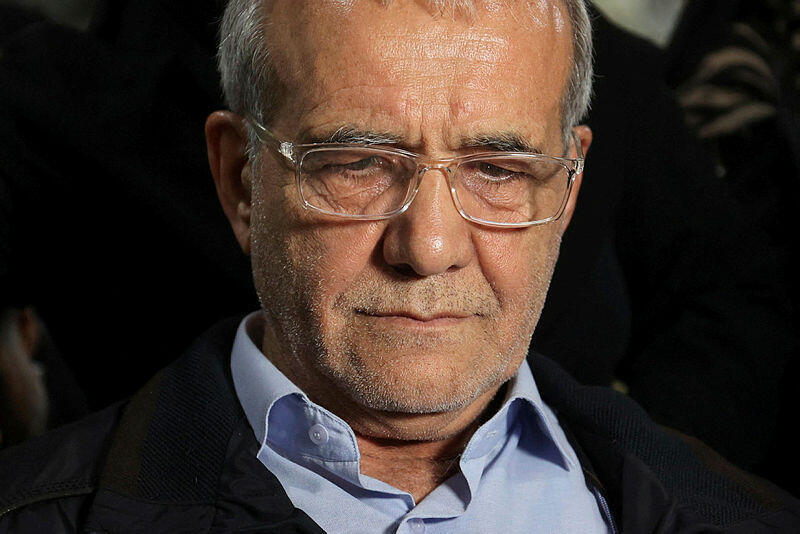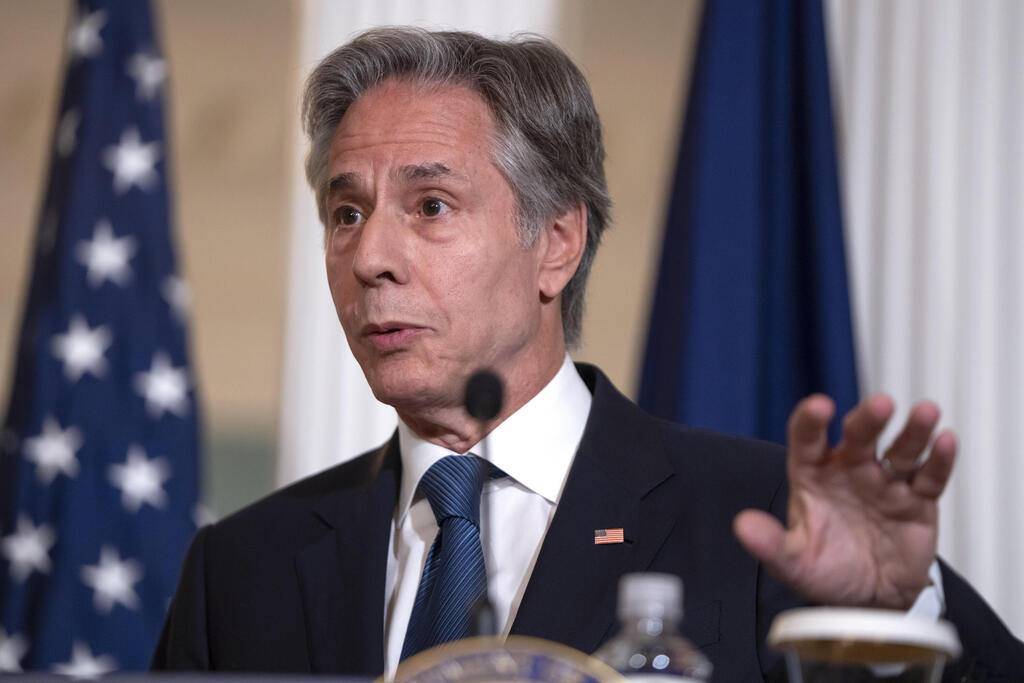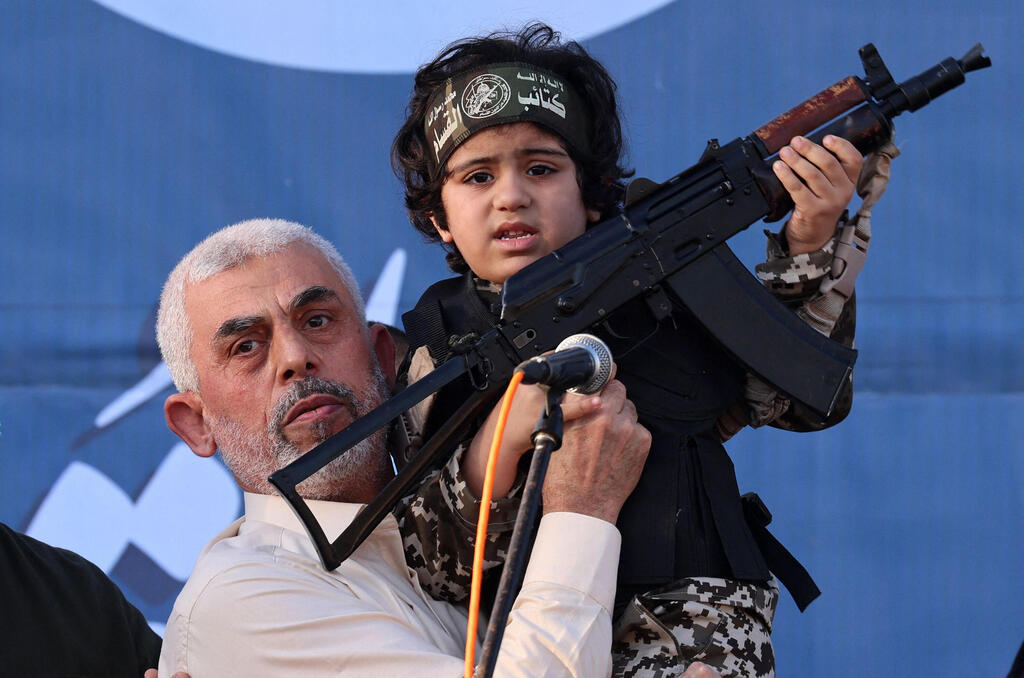The United States is set to transfer $3.5 billion to Israel for the procurement of U.S. weapons and military equipment, as announced by the State Department on Friday night. CNN reported that against the backdrop of heightened tensions with Iran, the White House will release these funds months after Congress allocated them to Israel. This amount is part of a larger $14.1 billion package approved last April.
Meanwhile, Iran continues to issue severe threats against Israel following the assassination of Ismail Haniyeh in Tehran. As Hezbollah leader Hassan Nasrallah stated this week, from the perspective of the Shiite axis, "Israel's waiting time is part of the response."
3 View gallery


Iran President Masoud Pezeshkian
(Photo: Majid Asgaripour/WANA (West Asia News Agency)
Ali Fadavi, the Deputy Commander of the Revolutionary Guards, joined the chorus of threats, asserting that Iran is ready to launch the attack. "The Supreme Leader's orders regarding severe punishment for Israel and revenge for the blood of Ismail Haniyeh were clear and explicit. They will be carried out in the best possible way," Fadavi said.
Simultaneously, the Iranian delegation to the UN addressed the possibility of delaying Tehran's anticipated response against Israel until after the negotiation talks between Israel and Hamas, mediated and scheduled for next Thursday.
The delegation stated, "We hope our response will be timed and executed in a way that does not harm the possibility of a cease-fire." They further added, "Our priority is to establish a lasting cease-fire in Gaza, and any agreement accepted by Hamas will also be recognized by us. The Israeli regime violated our national security and autonomy with its latest act of terrorism, and we have the legitimate right to self-defense - a matter that is not related at all to the cease-fire in Gaza. However, we hope our response will be timed and executed in a way that does not harm the potential cease-fire."
In Israel, there is heightened alertness in anticipation of a possible response. During a cabinet discussion held on Thursday in central Tel Aviv, it was reiterated that Hezbollah would likely be the first to respond to the assassination of its senior military commander, Fuad Shukr, who was killed in an Israeli attack in Beirut. One of the assessments heard in the cabinet discussion, and confirmed on Friday in a report by the British Telegraph, was that the response might focus on military targets.
3 View gallery


Antony Blinken reiterates commitment to defend Israel
(Photo: Mark Schiefelbein / AP)
Amid peak readiness, with the U.S. also preparing to assist Israel in intercepting an attack from Iran if it materializes, White House National Security Council spokesman John Kirby said Washington is ready to defend Israel with "substantial resources in the region."
"When we hear such rhetoric - we must take it seriously, and we do," Kirby emphasized. "President Biden is prepared to do everything to defend Israel. This marks the second time in four months." The U.S. has reinforced its military presence in the Middle East, and just two days ago, the U.S. Central Command announced that F-22 stealth fighter jets were sent to the region.
Defense Minister Yoav Gallant spoke last night by phone with U.S. Secretary of State Antony Blinken regarding "ongoing efforts to de-escalate tensions in the region," according to a statement from the U.S. State Department. "Blinken reiterated the U.S. commitment to Israel's security and told Gallant that escalation is not in anyone's interest," the statement said.
It was reported on Friday that one reason for the delay in Tehran's response is an internal Iranian dispute between the new president, Masoud Pazeshkian, and members of the Revolutionary Guards. According to the Telegraph, Pazeshkian fears the consequences of a direct Iranian attack on Israel and suggested targeting Israeli assets in neighboring countries. However, this is not acceptable to the Revolutionary Guards, who insist on targeting military objectives in the Tel Aviv area and other central cities in Israel.
The British Guardian reported in the last 24 hours that amid heavy international pressure on Iran to show restraint in its response and avoid dramatic escalation, it is possible that Iran might target those allegedly responsible for the assassination of Haniyeh: Mossad, or entities related to it. The Guardian report aligns with Pazeshkian's stance. Those close to the Iranian President even accused the Revolutionary Guards of trying to undermine him.
However, a source in the organization told the Telegraph they believe Pazeshkian is "concerned about his status." According to the source, "Few members of the Revolutionary Guards listen to him. The only consideration is whether to attack Tel Aviv with Hezbollah and others at the same time."
Meanwhile, amid the U.S.-Egyptian-Qatari declaration calling for the promotion of a hostages deal and a cease-fire, a Hezbollah parliamentary source told the Qatari newspaper The New Arab on Thursday that "we are waiting for the results of the negotiations regarding the cease-fire in Gaza and monitoring developments. We hope it succeeds, although we do not trust the enemy. Hezbollah's position is clear – when the war stops in Gaza, it stops in Lebanon."
Nevertheless, the source clarified Hezbollah would respond to the attack that killed Shukr. "No matter where the negotiations lead, it will not apply to the response to the attack in Beirut. This is a separate issue," he said.




